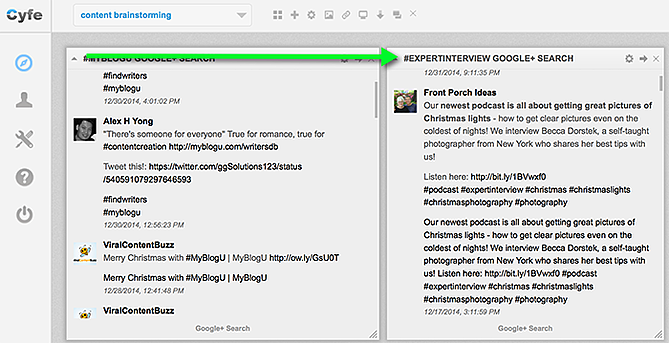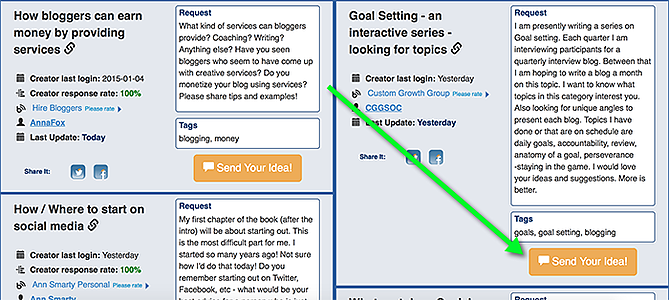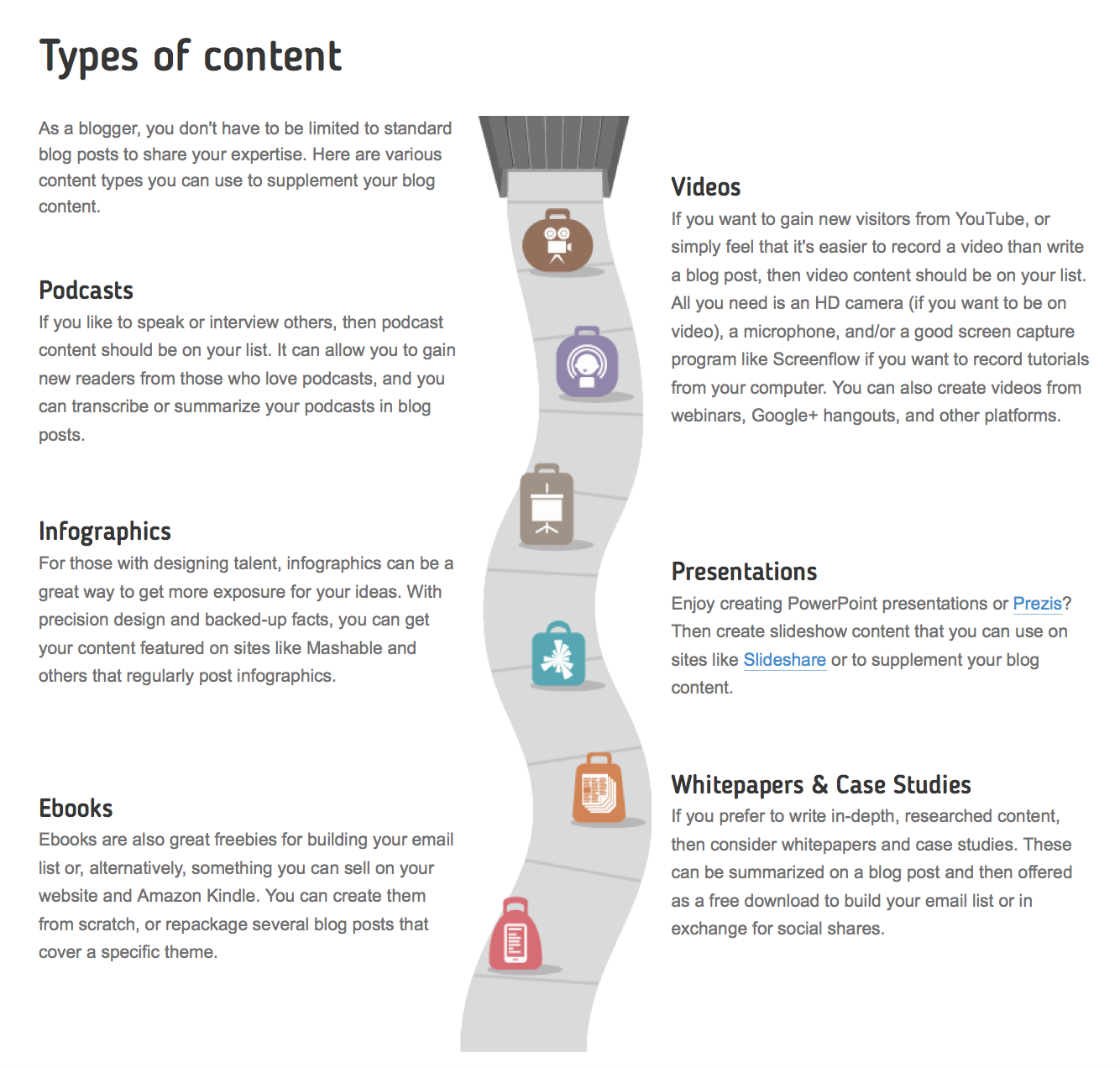I've been blogging for as long as I've been working. I started blogging shortly after I graduated from college and I've never stopped ever since. I blog for myself, I blog for a living, and I blog for self-growth and self-education.

Some of the most frequent questions that I hear are: How do you keep up? How do you keep yourself motivated and inspired? How do you keep producing fresh content without burning out?
I am sure many bloggers have different tricks. Here are mine.
1) Read a lot.
For someone who works so much (while trying to maintain a normal life), this is a tricky one. It's easy to keep pushing your reading plans down your to-do list until the "actual" work is done. However, without regularly seeing someone else's work and staying on top of industry trends, you'll quickly find yourself burnt out.
And this is not just about keeping up with expert articles and professional resources. It's about reading in general. Reading allows me to refresh my mind, switch to another topic, and ultimately get inspired. It's also the most efficient self-development and personal growth tactic I am aware of.
But back to the lack-of-time issue I am dealing with. How to find time for reading while you can barely find time for sleep?
I have a few tactics of my own:
- Learn to read fast. I got very efficient at reading, especially when it comes to reading industry news. I don't have time to check RSS feeds: I use my trusted Twitter list to deliver industry news right to me as it happens. You can use Tweetdeck desktop notifications or set up HubSpot Social Inbox email notifications to watch the news without interrupting your workflow. If I spot something reading-worthy, I'll click the link, scan through: that's it, the news is absorbed into my mind. One minute at a time to get a bit smarter ...
- Embrace audio books and podcasts. I listen to audio books while commuting to work or getting chores done -- that way, that time well spent!
- Develop your own way to organize your reading list. I tried lots of note-taking and list-building tools for that. They all have one problem in common: When I get busy, I forget to update it or check it out for outstanding tasks, hence I ultimately get terribly behind. So I am using something I can't ignore: My inbox. I send links to myself. I don't clear them out of my inbox until I read them. I am very serious about keeping my inbox empty, so these will always be irritatingly getting in my way. Thus I'll force myself to read them as soon as I can.
- Get very efficient at tracking potential content ideas. I am currently using Cyfe. I've set up a separate Cyfe dashboard full of widgets monitoring all sorts of search results: Twitter search results for my favorite hashtags, Google Plus search results, Google Alerts, etc. (HubSpot customers, you can use Social Inbox for this, too.)

2) Write down your blog post as soon as you feel inspired.
This is very important. The moment the idea comes to your mind and you feel good about it, write down as much of what you think as you can.
I use traditional college-born note-taking habit here: I take brief notes using anything I have at hand: A piece of paper, iPhone, or a laptop. I note down everything that's on my mind at this very moment and I don't stop until I am done. I draw arrows, write down bullet points, mention tools, and examples. (By the end, I think I am the only one who can understand those notes.)
Never wait until you have enough time to write the post. If you miss that very important moment of being inspired, that article may never happen.
In all honesty, I don't even believe in the very concept of "enough time." Just do it when you feel like it. Yes, writing your idea down (in much detail) is likely to often distract you from what you are currently doing, but it will soon grow into a habit and you'll learn to still be organized.
3) Get brainstorming help.
As an active blogger who's been writing non-stop for almost eight years, feeling helpless, overwhelmed and stuck is actually a big problem for me.
That's the main reason why I started MyBlogU: It keeps you motivated and inspired. Just ask the community for ideas and you'll see lots of them coming from bloggers from your niche and outside of it (which is even better for finding unique perspective). I became a much more productive writer when I started using MyBlogU to brainstorm.

There are more ways to benefit from collective knowledge to get inspired. The other two platforms I am using are:
- Quora. I find this site very well organized and clutter-free (unlike other q&a sites I tried).
- HARO. It hasn't been as successful for me lately than it used to be but this is still a great way to collect quotes and opinions to discover unexpected angles for your articles.
4) Try a different content format.
When I am tired, bored or stuck, I put together a video or a SlideShare deck -- seriously.
I don't have time to procrastinate, so creating something visual is actually how I get a rest. It is very refreshing and inspiring, especially if you know the right tools. Here are mine:
- Haiku Deck to create awesome Slideshare presentations
- Snagit to create screen captures for video tutorials
- iMovie and Animoto to edit and beautify videos
- Canva to create simple infographics or visual instructions
- Gifdeck and Gyazo GIF to create animated Gif instructions.
These tools are very simple and thus very productive: You don't have to spend hours to create a professional-looking piece of visual content. You also find yourself much more inspired while working with them.
For a structured overview of a few of the types of content you can switch to, refer to this blog post and this chapter from First Site Guide:

5) When in doubt, find tools.
This is my personal workaround to producing useful content regularly. There are tools for everything -- and many of them are free (or cheap). Plus, they make great fodder for bloggers. Here's why:
- By using tools, you come up with new, original content ideas. Sometimes when I am stuck, I am just searching Google for different tools and start testing them. Then I just think which problem it may be solving, describe how and add lots of useful screenshots: That's a perfect piece of content for "when I am stuck" moments.
- Readers love resourceful articles. Everyone would like to know what to do and how to do once they are done reading. By listing related tools, you make your article more actionable, memorable and bookmark-worthy.
- Knowing useful tools makes you a more knowledgeable writer. If you apply old tools to solve new problems, you get an article idea no one ever thought about! For example, long ago, when marketers were looking for ways to monitor Pinterest, I wrote a tutorial on how to do that using an old RSS tool I had been using for ages. That article did insanely well and I didn't even have to do any new research to write it -- I just remembered the old tool and got an idea on how it could be helpful for the new social media platform.
These are my writing productivity tricks -- nothing special, yet they've been working for me for almost a decade.
How do you keep yourself inspired? Please share your tips with us in the comments below.


![How Often Should You (or Your Company) Blog? [New Data]](https://blog.hubspot.com/hubfs/how%20often%20should%20you%20blog%20%28external%20research%29_featured.png)
![19 Types of Blogs that Make Money in 2024 [+Examples]](https://blog.hubspot.com/hubfs/blogs-Jan-05-2024-05-12-25-3281-PM.png)
![The Top 3 Reasons Consumers Read Blogs & How to Attract Them in 2024 [New Data]](https://blog.hubspot.com/hubfs/202_Reasons-Consumers-Read-Blogs.png)




